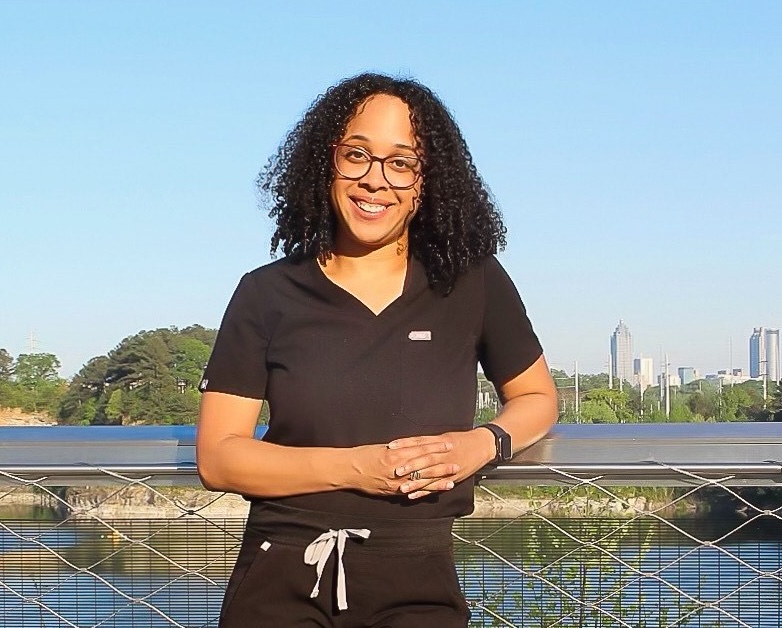The perspective on seeking investment varies company by company. Still, a common theme exists that it is necessary to ensure knowledge of the market and the actual value of one's technology and that the company's cash runway does not disappear before more funding is secured.
Brigham Hyde, CEO of Atropos Health, discussed with MobiHealthNews the crucial internal and external factors companies must consider before and while approaching investors, as well as his view on the longevity of AI use in healthcare.
MobiHealthNews: How have you seen the funding landscape change since the significant investments attained in 2021?
Brigham Hyde: There are a couple of dynamics at play.
First, that was post-COVID, post-free money, peak low interest rates, and fundamentally, in all of the investment world not just venture, tax around liquidity. And when you've been at peak liquidity for a while, as we were through 2019, 2020 and 2021, the size of the checks go up, valuations go up, and the dumb ideas go up as well.
So, I think that period coming to an end, frankly...it was not good for any of us. It was not good for the VCs, it was not good for investors and LPS, and it was not good for companies either, really, because a lot of other companies I know that took big chunks of money at big valuations at that time, their life is pain right now.
The thesis at that time, particularly in the tech community, was that you should do a big raise so you can kind of buy the market. You buy penetration, you spend on marketing, all those things. The problem is that ends up being kind of a self-fulfilling spiral because once you enter a market on that basis, you have to keep feeding the dragon if you will. And that makes it difficult. A return to sanity was probably good for everybody.
Last year, the flag in the ground was Silicon Valley Bank because that affected what was going to happen in the broader banking and lending structure. It was along the trajectory of the interest rate dynamic, and I remember having a conversation as that was happening. We were like okay the world is completely different. You need to think that way right now.
Now, the good thing for us back before that, through that, and now is I really try and focus on building quality products that people like that create value for the system. And if you hold that to be true over a longer run that's what wins.
The one caveat is that you have to pay attention to what's happening in technology trends, and the one thing that's been winning since last year has been AI and generative AI. So, we made a decision, and we were working on some things already, but we made the decision to double down on generative AI...and I think that's a good decision. It helped us in the fundraising process.
Now, we had to put that through the lens of whether it is still core to our principles, which are greater user experience, driving value for users and customers and creating value in the system. That application passes that mark for us.
So, it probably helped us, like, the hype of it all, being part of the cycle, but we also built something real that I think is going to go through this hype cycle.
And we've expected as well for this bubble to burst a little bit. And basically, like, if you just build the company, around, "Hey, I downloaded some language model software using ChatGPT and I'm doing something so I can be better than somebody who did it before," I think a lot of those companies are gonna go down.
You have to think about where things tack, too. For us in healthcare, it's all about accuracy, quality, and physician trust. So, we bet really heavily on that in and around our generative products, and I think that'll be sustainable.
MHN: That's interesting to hear that you expect the AI bubble to burst. In what capacity are you expecting it to burst? What does that mean?
Hyde: So, in healthcare, there's been publications out now, over the last couple of months, that's basically looking at how Microsoft and Epic and others have put these LLMs into physician workflow.
The top use case to start is note summarization–saving the doctors from having to write all the notes, reminders for physicians or patients, and helping physicians with prescriptions. There has also been some documentation and billing stuff. And the basic analysis is yeah it works okay, yeah we kind of like it, but does it save us any time or create any economic value? No, it doesn't.
So you kind of have this situation where doctors got dragged into doing all this stuff. They're like, "Yeah, it's kind of cool," is the response, but it's not like, "Oh, I can see ten more patients today." And it's not like, "Oh, I no longer have to write physician notes." It's just a little easier and a little better and by the way, that's great. It'll get better, but when we talk about bubbles, the promise of this bubble is that it will increase revenue and reduce costs while reducing physician burnout. And that has yet to happen.
So, I'd make a big tech comment. Microsoft and NVIDIA have had a great run, and deservedly so. Their strategies have been excellent. But at some point here, let's say you're a health system, and you're now paying another $50 million a year for LLM tech and compute, and you're like, "Wait a minute. So, my Microsoft bill went up, but did I get more revenue or more efficient staff?" And the answer this year is going to be no.
I think there will be a little bit of "come-to-Jesus" as some of these CIOs stare at their budgets and say, "Oh, we just spent more money."
MHN: Atropos garnered $33 million in funding earlier this year. As you approach VCs, what is your strategy to ensure you receive the funding you need? And have you had to change how you approach investors to fit the changing funding environment?
Hyde: Gone are the days of, "Here's a couple of slides, it's a $10 billion market and we're going after giving a check." Those days are gone. The diligence burden is much higher now. But frankly, that's a good thing, in my opinion. And I build companies that pass due diligence. That's what I do. I've been doing it for 15 years. And that's because I think as an investor, too. You want to build something that's real.
So, I think in 2021 or 2020, it was like, "Hey. Good idea. Let's get some money in the market. There's plenty of money. I have to put money somewhere." Now, things are getting a little healthier. You still have to build a real business and have a good strategy and have deep financials, and all that stuff. I don't mind any of that. That's how I operate. But years ago, maybe that wasn't the way they did it.
MHN: What would you say to digital health startups working to obtain funding? What should they know and keep in mind?
Hyde: Something that's playing out right now that's really important, and I feel like we're getting it right though I wouldn't declare victory yet, is in the genAI space the technology is moving so fast that you have to make a bunch of assumptions about the big tech world when you build your product and strategy. If you are training an LLM to be the best-performing medical LLM and assume ChatGPT will not be able to do this–bad assumption. Because with every release, it's getting better. It's like, with every release, they're eating whole sets of industries.
So, the better place to tack is to assume that tech will get better and be able to do more things. What would you build with it? And that's a great opportunity, right? Because you're going to have a better product just because these things are improving. So, it's about identifying those opportunities. The other big thing is in healthcare, particularly with providers, distribution has become incredibly important, and workflows have become incredibly important. Having an advantage in strategy is really critical.




![Healthy Coconut Caramel Almond Flour Cookies [grain-free + no added sugar]](https://i0.wp.com/healthyhelperkaila.com/wp-content/uploads/2024/09/an-overhead-photo-of-a-batch-of-homemade-caramel-a-VkJtFzoJT9OQ1HcdIYLKvA-o2Ndk98OQKKglk_fop8vPA.png?fit=863%2C850&ssl=1)





![Healthy No-Bake Mint Chocolate Truffles [high protein + no added sugar]](https://healthyhelperkaila.com/wp-content/uploads/2024/08/IMG_1902-e1724891697681.png)







 English (US) ·
English (US) ·